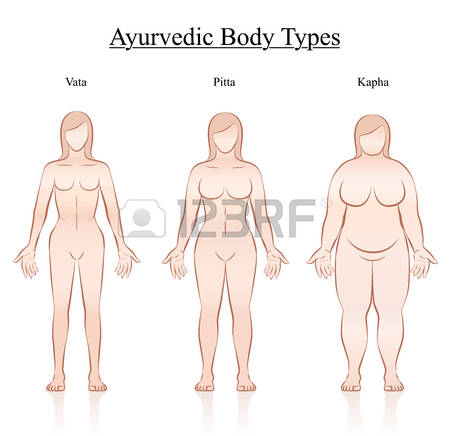









Characterology And Typology
Most of us know our astrological birth sign, and many of us will know whether we are an 'earth', 'fire', 'air', or water sign. This is a form of typography, a classification system, which is also about character, characterology. We talk about someone being 'too earthy' or 'too earthy' or 'too fiery', an 'airhead' or 'wet', and when we do this we're continuing a tradition that stretches back in time, for as long as we can see.
Classifying people's characters in various ways has been done throughout time and throughout the world. The Sufis have the nine characters of the enneagram, the Chinese have yin/yang and five elements of water, fire, wood, metal and earth, the Indians have Ayurvedic medicine which recognises the three personality and energy types Vata, Pitta, and Kapha, while the Greeks have the four 'humors', a concept that was continued in western medicine until the seventeenth century and beyond.
The father of psychology, C.G Jung, also adapted these four humors of air, fire, water and earth into the concept of the four aspects of a human being: thinking (air),intuition (fire), feeling (water), and sensation (earth)
We might talk about someone being in good or bad 'humor', by which we mean their mood, but this word comes from 'humoral', which once described a person's basic physical or mental qualities or disposition.
The man who most influenced the course of western medicine - the ancient Greek, Galen - used the categories of sanguine(fire) - optimistic and happy; melancholic (earth) - depressed and anxious; choleric (air) -irritable and impulsive; and phlegmatic (water) - listless and not easily moved.
The different combinations of the four humors in any one individual constituted their 'complexions'; or 'temperaments' - their physical and mental qualities - and the ideal was to have an equal proportion of all four. Balance, in other words. Although the words sanguine, phlegmatic and so on are still used in the English language, they have lost the psychophysical significance they had in ancient Greece.
The choleric person for example, was not only irritable and short-tempered but yellow-faced, lean, hairy, proud, ambitious, revengeful and shrewd. These characterizations were the basis of diagnosis for over 1,500 years in the western tradition, and a person who was innovative and a 'born' leader would be described as a fire personality, someone who was sensitive and feeling would be a 'water' personality, while the thinkers and philosophers were the 'air' type, and medications or treatments would be given taking the personality into account.
Diagnosing people by a combination of physical and mental attributes is still today not in the slightest bit unusual. Homeopaths do it every day. Dr Ronald Livingston, for example, describes the patient who would most benefit from the homeopathic remedy natrum muriaticum: 'withdrawn, moody, tacturn, seclusive, sullen and silent when questioned; and attention and sympathy make him resentful and ungracious to the point of tears'.
Likewise, a practitioner of Ayurvedic medicine will diagnose you in terms of the three energy forces or doshas - vata, pitta and kapha, which he or she will aim to bring into harmony with ayurvedic medicines, diet, massage, meditation, yoga or essential oils. Vata dosha types are described as enthusiastic and lovers of new experiences but when out of balance they become anxious, exhausted and depressed.
Pitta dosha types have a fiery temperament and are ambitious, perhaps overbearing and demanding, but will suffer stress, tension and anxiety when out of balance. Kapha dosha types are calm, strong and steady but when imbalanced become insecure, lethargic and lazy. A person might have two dominant personality types and the skill of the practitioner depends on their able to identify these and bring them into harmony with one another.
Reference: The Fragrant Mind: Valerie Ann Worwood
- Home
- Addiction
- JASMINE- Floral - Jasminum Officinale,J. grandiflorum, J.sambac
- History of Drugs-4
- History of Drugs
- History of Drugs-3
- The Somatid Connection
- Rosemary-Personality-Profile
- Personality In Perfumery
- Cinnamon - Personality profile
- Personality Tests
- The Water Connection
- Mind-Mood-Emotion-Quick Reference Chart - S - Un
- History of Drugs-5
- Mind-Mood-Emotion-Quick Reference Chart - Un - W
- Emotional-Healing Problems-A-B-Positive and Negative Mood Charts
- Emotional-Healing Problems-B-H-Positive and Negative Mood Charts
- How Essential Oils Work On the Brain
- Cardamom Personality Profile
- Essential Oils Used For Emotional Healing-A-M
- Lavender- Floral/Herbie
- Positive Mind, Mood & Emotion - Alertness
- Juniper personality profile
- JASMINE- Floral - Jasminum Officinale,J. grandiflorum, J.sambac
- HYACINTH - Floral - Hyacinthus Orientalis
- Emotional Healing Introduction - 2
- Emotional Healing Introduction
- Memory Enhancement, Mental Clarity and Efficiency
- How To Get Through Life In One Piece
- HELICHRYSUM (Immortelle or Italian Everlasting)
- GRAPEFRUIT - Fruitie - Citrus paradisi
- The Art Of Smelling - Which Method - Aromaprofiles
- The Art Of Smelling
- GINGER PERSONALITY PROFILE
- Geranium - Pelargonium graveolens Personality Profile
- Frankincense Resinie - Boswellia Carteri
- Quality and Purity - 2 - AromaProfiles
- Quality and Purity - AromaProfiles
- ChemoTypes - AromaProfiles
- Adaptogens - AromaProfiles


